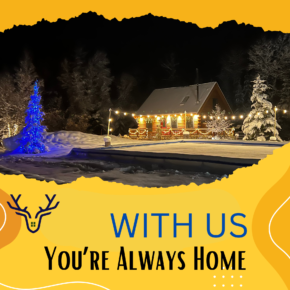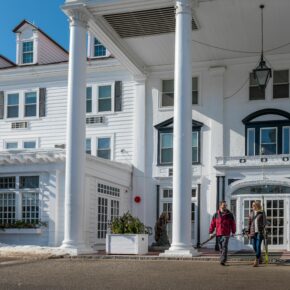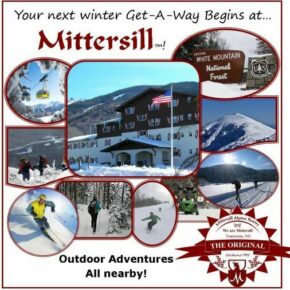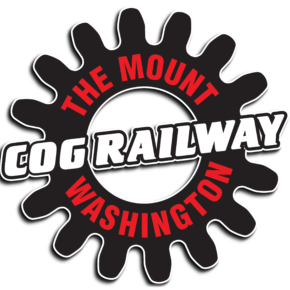Career Development - Ski Patrol
The Ski Patrol's main duty is on hill skier safety and provide pre-hospital emergency care. But, as a ski patroller, your duties don't stop at patient care. Ski Patroller's are responsible for all aspects of on mountain safety. Patroller's transport uninjured skiers or snowboarders who are having difficulty or have lost or damaged equipment to the base area by toboggan. They also perform a variety of trail maintenance tasks, check trails for hazards, missing signs; put up signs and mark hazards; cut brush; pack down and shovel snow; put up fences and close trails when necessary.
5 Steps to Becoming a Ski Patroller:
- Location, location, location. Find a patrol you are interested in joining. The mountains are your office, and you get to choose your view.
- Learn about their minimum requirements. Do they require WFR, EMT-B, or OEC? Not sure what these certifications are or require? Check out the links below.
- Assess and know your limits. Every call is different, terrain varies, weather is unpredictable, knowing your limits and when to ask for help is critical as a member of ski patrol. When an emergency arises, there is no shame in asking for additional members of your team to assist you in helping a patient.
- Find your niche. Many ski areas depend on volunteer patrol members, while other ski areas employ full-time or part-time paid patrollers, and some ski areas have a mix of both.
- Work hard, play harder. Most patrollers choose this career path because they want to work where they play. As a ski patroller you have to anticipate and be ready for anything. Ski patrol puts their life on the line to ensure the safety of others. It is important to keep both your medical skills and your on the snow training up to date so you can be ready for anything. While there is a significant amount of training involved with patrolling, taking fun runs to get to know your mountain is highly encouraged, which is the #1 reason why people join patrol - to ski.
Outdoor Emergency Care
The Outdoor Emergency Care (OEC) program operates oversight and quality assurance for Regional OEC and local patrol needs. OEC Programs are offered locally and nationally.
Outdoor Emergency Care® is the NSP’s training program for patrollers and others in the recreation community who deal with emergency situations. This nationally recognized program is designed to help patrollers manage the toughest emergencies on the slopes.
Eastern Division is dedicated to bringing the best National Ski Patrol educational programs to members in the northeastern United States. Patroller School was created to help program managers reach Ski Patrollers, and their affiliate members, locate and enroll in division sponsored events. Our goal is to provide everyone with easy access to selecting and registering for courses.
Visit the Eastern Division Calendar for OEC events by clicking the button below.

Wilderness First Responder (WFR)
The WFR is the perfect course for anyone working in a position of leadership in an outdoor setting, including ski patrol, backcountry guides, mountain guides, camp counselors, and river guides. The WFR course is recognized as the industry standard. The minimum age for a WFR certification is 16. If you are under 18 years of age, written proof of parental/guardian consent is required.
The WFR is 72+ hours long (8 to 10 days), and is a comprehensive and in-depth look at the standards and skills of dealing with: Response and Assessment, Musculoskeletal Injuries, Environmental Emergencies and Survival Skills, Soft Tissue Injuries, and Medical Emergencies. These topics are covered far more extensively than a Wilderness First Aid class, and there is much more hands-on practice. Additional topics, such as CPR, are also included.
Standard WFR courses are offered in person and can range from 7-9 days. There are options for hybrid courses as well. To earn certification, students must meet the criteria set forth in their chosen program, as well as the minimum WFR performance and testing standards. Follow the links below to learn about some of the different programs available.
Stonehearth Open Learning Opportunities (SOLO) - Classes take place all across the US, virtually anytime, check the schedule for WFR classes near you.
Wilderness Medical Associates International - Classes run on a semi-regular basis all over the world, click here for the WFR schedule.
Emergency Medical Technician - Basic (EMT-B)
Most ski areas accept an EMT-B license for ski patrol. EMTs have the basic knowledge and skills necessary to stabilize and safely transport patients ranging from non-emergency and routine medical transports to life threatening emergencies. Emergency Medical Technicians function as part of a comprehensive EMS response system, under medical oversight. Emergency Medical Technicians perform interventions with the basic equipment typically found on an ambulance. Emergency Medical Technicians are a critical link between the scene of an emergency and the health care system.
To find an education program, bridge program, or state licensure near you follow the link above.


Best Vacation Homes in the area!
Wide selection of homes, top-notch service, keyless entry, Cog Rail discounts, and pool passes—Bretton Woods Vacations is your best choice in the White Mountains!
LEARN MORE
Eastern Slope Inn Resort
The Eastern Slope Inn is the iconic resort of North Conway Village featuring family-friendly spacious suites and amenities, just minutes to ski areas.
LEARN MORE
Come Discover Mittersill™!
Whatever your favorite winter adventure… Mittersill™ is right around the corner! A great get-a-way for the week or mid-week skier.
LEARN MORE
Winter trains on Mount Washington!
Climb the highest peak in the Northeast by rail, with daily departures to The Cog’s newly expanded Waumbek Station!
LEARN MORE